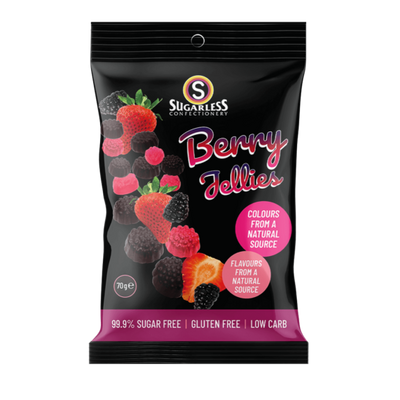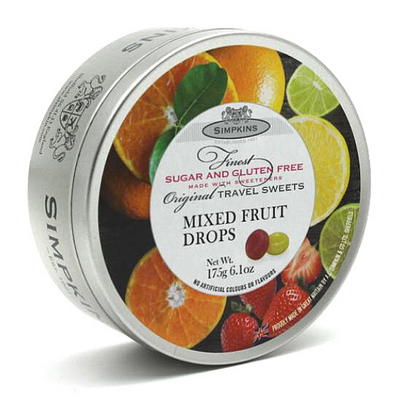Sugar Substitutes For Diabetics
Diabetics must take special care to avoid foods that cause blood sugar spikes. Controlling blood sugar is important for avoiding the more severe complications of diabetes. Low calorie/kilojoule sweeteners or sugar substitutes present in foods mean that people with diabetes can enjoy sweet foods and drinks without adversely affecting their blood sugar levels.

We will take a range of sweeteners (sugar alternatives) commonly found in sweetened foods and look at their suitability for diabetics.
Natural Sweeteners

Pros: Steviol glycosides are the chemical compounds that manufacturers extract from the leaves of the Stevia rebaudiana plant. This processed, purified product is around 300 times sweeter than sucrose or table sugar and is heat stable so can be used in cooking and baking. Stevia is calorie-free and does not affect blood glucose levels. It’s safe and non-toxic and early research is suggesting that stevia may help in the treatment of diabetes so that will be exciting to watch developments as time goes by.
Liquid Stevia flavoured drops added to water are a great way to not only add flavour to your water but also a pleasant way to keep dehydration (potentially caused by high blood sugar levels) at bay.
Cons: Some people find stevia has a bitter aftertaste and a few people may experience bloating and mild stomach upsets after consuming stevia.
Note: Some stevia products also contain other fillers or sweeteners. Check ingredients lists carefully to see what else, alongside Stevia, these products might have and how these might affect your glucose levels.
Monkfruit

Monk fruit is a small round fruit native to southern China. It has been used for centuries in Eastern medicine as a cold and digestive aid, and now it is also being used to sweeten foods and beverages as it is 150-200 times sweeter than sugar.
Pros: It is suitable for diabetics as it does not add calories, won’t affect your blood sugar, and has no harmful side effects. It is also thought to have antioxidant properties.
Note: Like Stevia – check the other ingredients that may be added to Monk Fruit alternative sweeteners and how they affect glucose levels.
Allulose
Pros: Allulose is a rare sugar about 70% as sweet as sucrose but gram for gram, allulose has approximately 90% fewer calories. It is not metabolised by the body, therefore does not increase blood glucose or insulin levels. Also excitingly, preliminary studies have suggested that Allulose may help regulate glucose levels.
Cons: Some people may experience some abdominal discomfort from consuming large quantities of allulose, but this side effect is not toxic and usually temporary.
Sugar Alcohols
Sugar alcohols are a category of sweet carbohydrates found naturally or processed from other sugars and are neither sugar nor alcohol. The amount of calories and the impact of sugar alcohols on your blood sugar varies quite a lot depending on which one you’re consuming. Erythritol contains almost zero calories per gram and has become very popular in keto diets and low-carb baking. Isomalt also contains essentially zero calories per gram and is used in many packaged “sugar-free” foods. Xylitol contains one-third the calories per gram than sugar and is shown not to raise blood sugar levels or cause hyperglycemia. In addition, xylitol has the added benefit of promoting oral health. It’s important to be aware that some others such as Sorbitol and Maltitol can have as much as 2-3 calories per gram (sugar has 4), therefore exercise caution when eating treats sweetened with these. Read the ingredients list and the nutrition panels carefully and perhaps even discuss further with your health professional.
Note: Due to the fact that your small intestine doesn’t absorb sugar alcohols well if you eat too much of some of them you may experience digestive issues such as gas, bloating, laxative effects – similar to eating too much fruit. These effects are not lasting nor have any long-term harmful effects.
Artificial Sweeteners
People who have phenylketonuria (PKU) should avoid aspartame due to its inability to metabolise phenylalanine. Also, those with or tardive dyskinesia should avoid it.
Acesulphame potassium got a bad rep from testing and research in the ’70s. However, the testing validity was called into question over the years. The jury is still out – and it’s a big jury with the FDA, EU CPA, CSPI, EFSA, and others not quite agreeing on how safe it is. This is one you might have to do your own research on to see where you think it fits on the safety spectrum.
Sucralose is considered safe in small amounts except for those with PKU and best not used in baking.
Be aware that some “natural” sugar alternatives that are often touted as being better for you than regular sugar, such as honey, brown rice syrup, maple syrup, agave syrup, coconut sugar, etc., may have the same or more kilojoules (and may raise your blood sugar similarly to regular table sugar) and their small amounts of additional nutrients have no extra health benefits.
The takeaway…
Our research leads us to believe that natural sweeteners such as stevia, monkfruit, allulose are most likely the best options for diabetics. Sugar alcohols are generally ok (some better than others) and should be eaten sparingly and monitor your levels carefully. Artificial sweeteners will not affect your blood levels adversely but you might want to consider other potential health issues surrounding their use. As always it’s most important to read labels carefully, do your own in-depth research from reputable sources and consult your health professional with any queries concerning sugar substitutes to satisfy your sweet tooth.
Sources:
- medicalnewstoday.com
- Consumer.org.nz
- ncbi.nlm.nih.gov
- Diabetes.org.uk
- diabetesstrong.com
- foodinsight.org
- healthline.com
- webmd.com
- caloriecontrol.org
- Diabetesselfmanagement.com
- Efsa.onlinelibrary
Disclaimer: This information is to be used as a guide only. If you are diabetic please do your own research or consult a medical professional as to which sugar substitutes are best for you.







Leave a comment